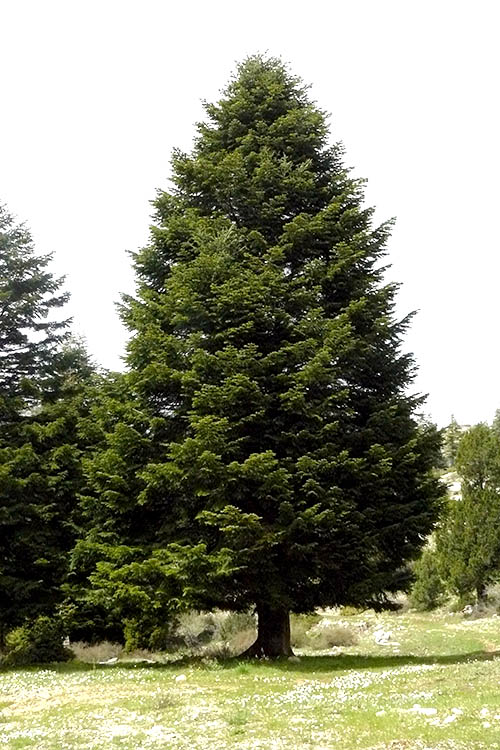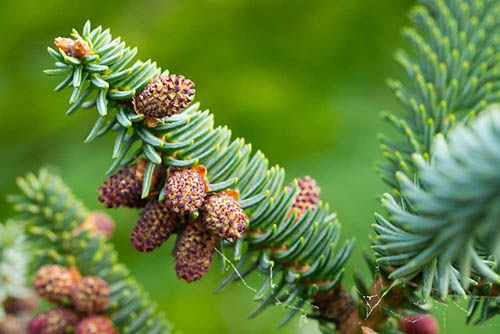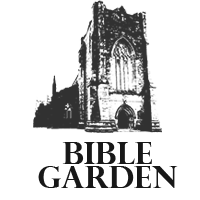Cilician Fir (Abies cilicica)
Map Position: 28
There are around 50 different species of fir in the world. In the eastern Mediterranean, Abies Cilicica (Syrian Fir or Cilician Fir) is the prevalent species and believed to be the fir mentioned in the Bible.
There is a nice story in Greek mythology about the origin of the name ‘Cilicia’ which is worth mentioning here: Zeus once kidnapped a girl from Lebanon and brought her to Cyprus. Her name was Europe. Europe’s father was of course very unhappy and sent out his sons to look for her; one of them was called Cilix. He did not find his sister, but on his quest, he fell in love with a girl in an area which is now south-east Turkey. He stayed there and the region was named after him: Cilicia. So it is not surprising that the fir trees which grow there are called Cilician Fir
Another fir tree that is native in that area is Abies Nordmannia, the Nordmann Fir which is very popular as Christmas Tree. Fir wood is not resistant to decay and rot and is used for indoor building only.
We have planted a Nordmann Fir (Position 27), which should grow fairly quickly and will make a nice Christmas Tree close to the entrance of our Church).
We struggled to get a Cilician Fir, but finally got hold of a tiny one; hopefully it will eventually grow into a nice big tree too. It is planted close to the Nordmann Fir, and it will complement it (Position 28).
Biblical
Coniferous trees are often confused in different translations of the Bible, especially with cedar, cypress, tamarisk, and pine.
In the English Standard Edition – our reference – we found the “Fir” mentioned on three occasions:
We are reminded that the Almighty God cares for all humans, plants and animals, birds’ nest in trees and for example “the stork has her home in the fir trees” (Psalm 104.17).

The prophet reminds us of the transience of all things: Tyre, a coastal city in modern Lebanon, was thought to be the most wonderful town. It is compared to a beautiful ship, whose builders “made all […] planks of fir trees from Senir”. Despite her unrivalled beauty Tyre was destroyed (Ezekiel 27.5).
The greatness of the Pharaoh of Egypt is described as bigger than the mightiest cedars and “the fir trees [could not] equal its boughs” (Ezekiel 31.8); yet it all vanished (see also 11. Cedar).
